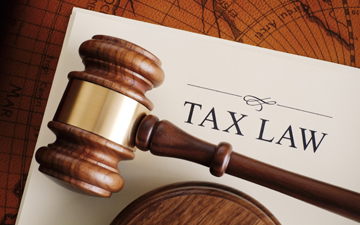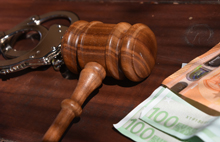$1.7M For CRA's "Malicious Prosecution" Set Aside On Appeal

Will the Samaroo malicious prosecution case go to the Supreme Court?
TORONTO, April 19, 2019 – The British Columbia Court of Appeal (the "BCCA") reversed (the "Decision") a landmark decision (the "Lower Court Decision") that had awarded a B.C. couple (the "Samaroos") $1.7 million in damages for the Canada Revenue Agency's (the "CRA") purported malicious prosecution of tax evasion.
The tort of malicious prosecution finds its origins in 13th century England. Its availability is important for asserting the rights of citizens to be free of excessive and unreasonable government prosecution. However, that interest has to be weighed against the public interest of having actual criminals face consequences.
 |
Left to right: David Piccolo, tax partner, and Joe Wahba, associate, of TaxChambers LLP in Toronto. |
The Supreme Court of Canada established the test for malicious prosecution in Miazaga v Kvello Estate, 2009 SCC 51:
[3] To succeed in an action for malicious prosecution, a plaintiff must prove that the prosecution was: (1) initiated by the defendant; (2) terminated in favour of the plaintiff; (3) undertaken without reasonable and probable cause; and (4) motivated by malice or a primary purpose other than that of carrying the law into effect.
In the Lower Court Decision, the lower court found that Mr. Keith Kendal, a CRA investigator, had intentionally suppressed evidence he knew meant that the Crown could not prove how the alleged tax evasion took place. As a result, the lower court decided that the actus reus of the offence could not be proven.
On appeal, the BCCA concluded that the lower court erred in its analysis that the charge of tax evasion could not be proven unless the particular mechanics of how the tax was evaded could be proven. Accordingly, the trial judge erred in his appreciation of what constituted the actus reus of the offense and inappropriately narrowed the scope of evidence used in assessing whether reasonable and probable cause existed.
While the Lower Court Decision turned on whether Mr. Kendal's behaviour could be considered malicious, the BCCA determined that there was reasonable and probable cause to bring charges against the Samaroos, thus negating the need for any analysis of Mr. Kendal's behaviour, malicious or otherwise.
The Decision exposes the technical nature of the analysis of tax law. The lower court took issue at the CRA's inability to prove exactly how the cash was allegedly skimmed from the businesses and not reported. On the other hand, the BCCA determined that proof of how the tax was evaded was not an essential element of the offence under the Income Tax Act. Thus, the actus reus of the offense could be established in a number of ways, including by drawing inferences from circumstantial evidence.
The next step in this saga for the Samaroos would be to seek leave of this decision to the Supreme Court of Canada.









(0) Comments